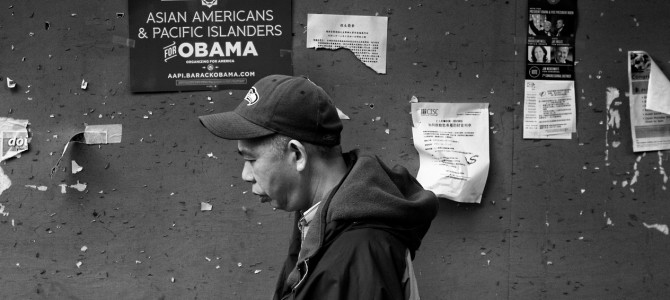
When I was in the fifth grade, an Irish kid in my class asked me why I had killed Jesus. Though I didn’t realize it at the time, I had been “othered.” The allegation sparked a minor religious skirmish at the Saw Mill Road Elementary School, pitting the predominant Catholics against the Jews. And, needless to say, reprehensible quips about ethnicity were lobbed back and forth until all denominations agreed that a game of kickball would be far more constructive.
They survived. And we survived. And some moved into adulthood and into gentile-heavy areas where they could occasionally hear off-color remarks about their heritage without making broad assumptions about America. As a political matter, Jews vote for Democrats because they live in dense urban metro areas where most voters share cultural and ideological sensibilities of Democrats, not because they were victims of derogatory comments. They vote for Democrats because long ago their parents voted for FDR or because their leadership often preaches liberalism as if it were Judaism. Or maybe most Jews come to the identical political conclusions one generation after the next. Whatever the case, their affiliation has nothing to do with social exclusion or microaggression or microinvalidations or microinsults.
I bring this up because of a recent piece in Politico titled “Why Are Asian Americans Democrats?” Written by professors Alexander Kuo, Neil Malhotra and Cecilia Hyunjung Mo, the piece makes the contention that “microaggression” is what pushes the entire Asian American community – whose experience mirrors that of American Jews — to vote Democrat. Microaggression, according to Fordham University, “are common verbal, behavioral, and environmental indignities, whether intentional or unintentional, that communicate hostile or negative slights to marginalized groups.”
Is it possible that high numbers of Asians vote for Democrats for the same reasons Jews do? Is it conceivable that most Asian Americans agree with liberal positions in substance? No, the authors contend. This is about how we feel. Like women, Hispanics and blacks, Asians aligns themselves with liberals because they have been deeply offended.
The professors begin making their microcase by pointing to an exchange between Senator Pat Roberts and President Barack Obama’s nominee for surgeon general, Vivek Murthy, an Indian American. Roberts invited Murthy to his state to meet his “ lovely doctor from India. She’s in her mid-30s and she’s highly respected by the community. And another doctor from India who did a carpal tunnel when I did a stupid thing. And so, I think you’d be right at home, and we would welcome you.”
This clumsy statement proves that Republicans have it in for Indian Americans. As the authors explain:
However harmless it might seem, this is exactly the sort of exchange that makes Asian Americans—the fastest growing ethnic group in the country—more likely to identify themselves as Democrats than Republicans, and by stunning margins.
Actually, it is harmless. Just as harmless as the more infamous line delivered by Joe Biden a few years back. “In Delaware,” the VP had explained, “you cannot go to a 7-11 or a Dunkin’ Donuts unless you have a slight Indian accent. I’m not joking.” The professors didn’t see fit to mention Joe. It might have proven that the GOP doesn’t have a monopoly on obtuse white guys. When I searched for another example of a high-profile conservatives smearing Indian Americans with slurs like “lovely doctor” and “highly respected,” I came up empty.
As it turns out, the problem is a more subtle one. Asking questions like “Where were you born?” has the propensity to turn people into Democrats because, evidently, Asian Americans have the extraordinary ability to discern the ideological affiliation of every person querying them. And everyone of them must be a right winger. These racial “microaggressions” claim the authors, are “sadly common and carry the implied message that Asian Americans are not true Americans.”
Funny, because my parents were immigrants and they were often asked where they were from; probably because they sounded a bit like Bela Lugosi and one the Gabor sisters. Foreign accents and unique features can arouse curiosity in people. You have to develop an impressive hypersensitivity to believe the inference of this innocent question is “you’re not a real American” – whatever that means. But even if it were true, so what? Why are we so distressed about the microhostility of strangers? Why do we have to be profoundly offended by every oblivious comment? Do dumb questions erect barriers to the progress of an entire community? More specifically, is there some conservative policy that aims to undermine the Asian American experience?
Near the end of the piece we get to the real purpose of the so-called science. They don’t like your tone. The authors ask: “What can the GOP do to win them back?” The answer, you will not be surprised to learn, is to be more liberal. There is no doubt that Republicans are perceived as the party of immigration restrictions (for good reason), and that turns off many minority voters. But it could also be argued that the GOP is also a party that is far more likely to celebrate and foster the merit-based success that the Asian community thrives on. (Though I should point out that making assumptions about Asian Americans as “model” minority is also microaggression.) And maybe one day the GOP will make that compelling case. But it’s difficult to believe that the Asian Americans, as the professors maintain, believe half the country is out to marginalize them with a bunch of subtle insinuations. In our real-world interactions we’re just not that sensitive. We shouldn’t be that sensitive in our politics, either.
David Harsanyi is a Senior Editor at The Federalist and author of the The People Have Spoken (and They Are Wrong): The Case Against Democracy. Follow him on Twitter.








